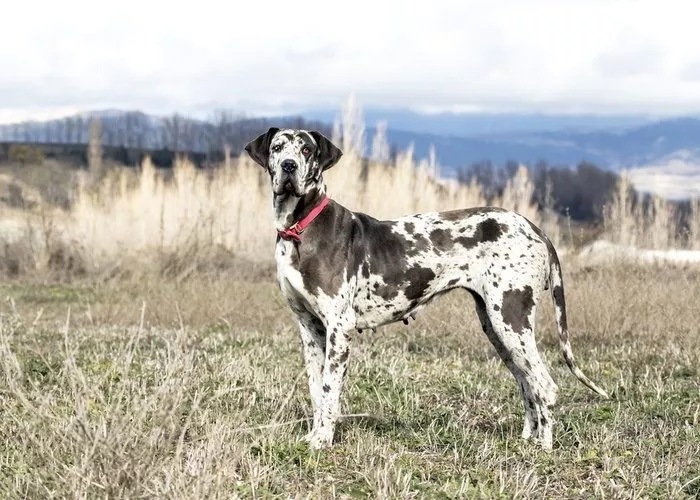The Great Dane is an imposing and commanding breed, known for its size and grace. When it comes to raising Great Danes, choosing the right food is crucial to their growth, development, and overall health. In this article, we will explore the best puppy food for Great Danes from a professional perspective.
Understand the nutritional needs of Great Dane puppies
Great Dane puppies also have unique nutritional needs due to their rapid growth and large size. Their diet needs to be rich in high-quality protein to support muscle development, healthy fats to provide energy and fur health, and essential vitamins and minerals to promote proper bone growth and immune function.
Protein is especially important for puppies because it provides the foundation for their growing bodies. Look for puppy foods with a high percentage of animal protein, such as chicken, beef, or fish. These proteins are easier to digest and contain all the essential amino acids that puppies need.
Fat is another important part of the Great Dane’s diet. They provide concentrated energy and help keep a puppy’s coat shiny and healthy. Good sources of fat include chicken fat, fish oil, and flaxseed oil.
Calcium and phosphorus are necessary for proper bone growth. If Great Danes do not consume the right amount of these minerals, they are prone to bone problems. However, it is important not to over-consume calcium, as this can also cause health problems. Give your puppy food with a balance of calcium and phosphorus.
Vitamins and minerals, such as vitamin D, iron, zinc, and copper, are also necessary for a puppy’s overall health. Vitamin D helps with calcium absorption, while iron is important for oxygen transport in the blood. Zinc and copper are essential for a healthy immune system.
Large breed puppy formula
Many pet food companies offer large breed puppy recipes specifically designed for breeds such as Great Danes. These formulations take into account the unique needs of large breed puppies, often to support proper bone and joint development.
Puppy food for large breeds often has a controlled calorie content to prevent rapid growth of the puppy, which can put stress on the developing joints of the puppy. They also have a balanced ratio of calcium and phosphorus to promote healthy bone growth.
Some large dog formulations may also contain ingredients such as glucosamine and chondroitin, which can help support joint health. These ingredients are especially important for Great Danes, as they are prone to joint problems later in life.
Find ingredients
When choosing puppy food for Great Danes, it is important to read ingredient labels carefully. Look for foods that list high-quality animal protein as their primary ingredient. Avoid foods that contain a lot of fillers, by-products, or artificial additives.
Whole grains such as brown rice, oats and barley are good sources of carbohydrates and fiber. However, some puppies may be sensitive to certain grains, so it may be necessary to choose a grain-free formula.
Fruits and vegetables can also be added to the puppy’s diet to provide additional vitamins and minerals. Look for foods that contain ingredients like sweet potatoes, carrots, apples, and blueberries.
Dry food and wet food
Both wet and dry puppy food are suitable for Great Danes. Dry food is convenient and helps dogs keep their teeth clean. Wet food has a higher moisture content, which is beneficial for puppies who do not drink enough water.
Some dog owners choose a mix of wet and dry feeding to ensure their dogs get enough water. However, it is important to monitor the puppy’s caloric intake when feeding a combination of foods to avoid overfeeding.
Feeding plan and portion control
Great Dane puppies should be fed regularly to ensure they are getting the right amount of nutrition. Puppies at six months old may need to be fed three or four times a day. With age, the number of feedings can be reduced to two or three times a day.
Portion control is also important to prevent overeating and obesity. Follow the feeding guidelines on the puppy food label as a starting point, but adjust the amount according to your puppy’s individual needs. Monitor your puppy’s weight and physical condition regularly, and consult your veterinarian if you have any concerns.
Transition to adult food
As Great Dane puppies grow, they eventually need to transition to adult food. This should be done gradually over a few days to avoid indigestion. Start by adding a small amount of adult food to the puppy’s food, gradually increasing the proportion of adult food over time.
When choosing adult food for your Great Dane, look for a formula that is appropriate for their age, size, and activity level. Adult Great Danes may have different nutritional needs than puppies, so it’s important to choose foods that meet their specific needs.
Consult a veterinarian
It is always a good idea to consult your veterinarian before choosing a dog food for your Great Dane. They can provide personalized advice based on your puppy’s individual needs and health. Your veterinarian can also recommend specific brands or formulations that they have had success with in the past.
Conclusion
In conclusion, choosing the best puppy food for Great Danes requires careful consideration of their unique nutritional needs. Look for high-quality foods that are rich in protein, have a balanced ratio of calcium and phosphorus, and contain essential vitamins and minerals. Consider recipes for large dogs, read ingredient labels carefully, and choose foods that are appropriate for your puppy’s age, size, and activity level. With the right diet and proper care, your Great Dane puppy can grow into a healthy, happy adult.
Related topics


